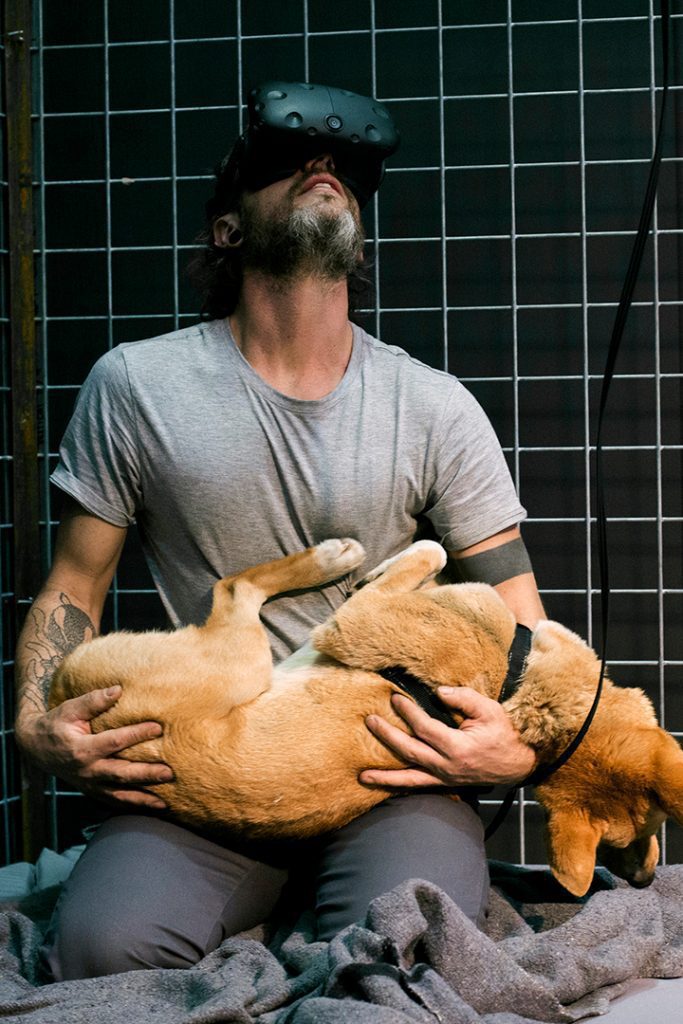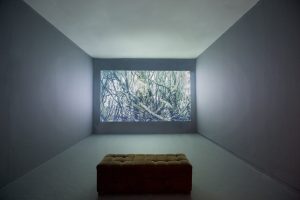Hayden Fowler (New Zealand-Sydney/Berlin)
Hayden Fowler has a Master of Fine Arts (MFA) from UNSW Australia and an earlier degree in Ecology. Their investigation of Anthropocene discourse is a key reference in Australian and New Zealand art theory. Fowler employs the dynamics of a hybrid arts-ecology practice, incorporating emerging theory from both the sciences and humanities in developing projects that engage audiences conceptually, aesthetically and immersively. Their work and thinking includes eco-feminist, queer-ecological and indigenous approaches, acknowledgement of the psychological, spiritual and cultural significance of the human-nature relationship and the assertion of animist, indigenous and mythological world views.
Fowler’s work and thinking is deeply located within colonial and post-colonial contexts: countering dominant Western discourse through the identification of it’s systemic role in human and ecological catastrophe and dismantling historic power structures through the construction of alternate realities.
They exhibit nationally and internationally and his work is held in a number of public and private collections. Fowler is a previous recipient of the Samstag International Visual Arts Scholarship, undertaking their year of study abroad at the Universität der Künste Berlin, Germany. In 2019, he also undertook a 12-month residency at Künstlerhaus Bethanien, Berlin.
“New World Order” (2013)
1-channel video Installation with audio | 16:9, HD, 15 minutes 17 second (loop)
A fowl (a type of bird and chicken) is seen going in and out of a hole in a tree. It is unclear if there are in fact multiple birds living inside the hole or if it is simply a cinematic manipulation. The image transition shifts from right to left, from bottom to top, highlighting the trees that provide a habitat for the white bird. Everything is silent and no sound can be heard, resembling the atmosphere inside a forest. All of a sudden, a bird chirped. What comes out, though, are not chirping sounds, but rather polyphonic tones: the familiar sounds that our phones produce. One bird after another make their polyphonic calls, as if desperately calling various types of other birds whose whereabouts are unknown.
This audio-visual presentation is a scene in Hayden Fowler’s video work titled New World Order (2013). At first glance, taking personification approach, the video seems to poke fun at humans whose relationships are built on technology. It becomes increasingly rare for human ears to capture other human’s voices as they come out of the lips, since they are first converted into digital sounds. However, the birds in the video are not exclusively a metaphor for human. Given Hayden’s background as a New Zealand artist who once studied biology/ecology, the animals in the video are the main subjects. Hayden is talking not only about humans, but also about the ever-transforming relationships between organisms and nature.
Indeed, the focus of contemporary artists on the world outside of human life has become more prevalent in the last two decades, responding to the intense discussion and dissemination of anthropocenism ideas as an attempt to research and build a new and more eco-friendly world order. Artists provide a critical reading of the relationships between humans and other organisms around them, with the awareness that life is not centered around humans, who cannot live without coexisting with other organisms. Views that place animals and plants as supplementary or second-class groups, frequently depicted as such in mainstream media such as news coverage or documentaries, are re-read and re-reflected by artists. They provide animals and plants with large spaces and agencies like what we can see in Peter Huyghe’s works.
In Fowler’s context, anthropocentrism ideas are highlighted on how the relationships between humans and nature are also affected by the history of colonialism and the expansion of capitalism, where an imbalance of power between nations has resulted in the loss of local wisdom and virtues that preserved the spiritual relationships between humans and other organisms. Colonialism also gave birth to invasion (settlement) process that destroyed natural forests and animal habitats inside, which, in turn, altered the life cycles of animals and plants. In his video, Fowler intervened by creating a sound-generating machine for the birds to call each other, equating natural sounds with man-made sounds. Fowler seemingly envisages how technology will help us rebuild a more-balanced relationships with nature and other organisms.
Ecological crises always appear to be Fowler’s focus of attention, which comes as no surprise considering his academic background in ecological studies. In his recent work, Death of Worlds (2021), Fowler presents a poetic reflection on a species’ extinction from nature in an ex-coal mining site. In his performative work, Together Again (2019), Fowler locks himself in a cage with a stray dog. While the dog is wandering around, staring at him, Fowler wears VR technology and locks his eyes on a digital
representation of iconic Australian scenes.
Hayden Fowler holds a Master of Fine Arts (MFA) degree from UNSW Australia, previously completing a degree in Ecology. Their research on Anthropocenism ideas is a major reference in Australian and New Zealand art theories. Fowler applies the dynamics of artistic-ecological hybrid, integrating scientific and humanities theories in developing a project that engages the audience conceptually, aesthetically, and immersively. His works and ideas include eco-feminist, queer-ecological, and indigenous approaches, recognition of psychological, spiritual, and cultural significance of human-nature relationship, and affirmation of animistic, indigenous, and mythological world views.
Fowler’s works and ideas lie deeply on colonial and post-colonial contexts: countering dominant Western ideas by identifying their systemic role in man-made and ecological disasters and dismantling historical power structures by constructing alternate realities. He has participated in various national and international exhibitions, and his works are kept in a number of public and private collections. Fowler is a recipient of the Samstag International Visual Arts Scholarship. He undertook a three-year study abroad at Universität der Künste Berlin, Germany. In 2019, he also undertook a twelve-month residency at Künstlerhaus Bethanien, Berlin.


